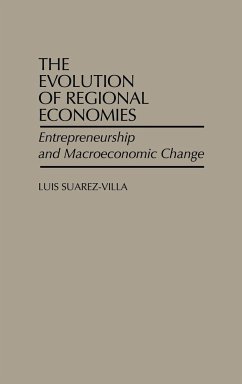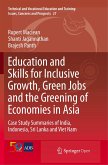A pioneering contribution to economic literature, this volume presents a theoretical and empirical study of the relationship between entrepreneurship and the process of long-term regional change. Based on an exhaustive review of classical works in historical, managerial, and spatial economics, Suarez-Villa identifies five major innovative entrepreneurial roles and their historical antecedents. He then explores the macro effects of these roles by analyzing data for a 94-year period, demonstrating the relationship between the emergence of each role and the occurence of major changes in the sectoral and regional economies. Following an introductory chapter that addresses economic change as an ongoing process, Suarez-Villa defines the various entrepreneurial roles in two theoretical chapters that examine the historical causes for their emergence and show how each can be viewed as an innovative agent of change. The empirical analysis of the succeeding chapters provides important new insights into the sectoral transformations of the U.S. regional economies promoted by the changing historical roles of entrepreneurship and the organizations through which it acts. Using U.S. national and regional data over the period 1889-1983 for agriculture, manufacturing, and distributive activities and services, as well as changes in regional, urban, and rural populations, the author identifies changes in regional productivity and employment for various sectors and the place of entrepreneurial activity in these changes. Concluding that entrepreneurship is an important but usually neglected component of regional economic change, Suarez-Villa draws conclusions from a long-term perspective, addressing such issues as entrepreneurial effectiveness, sectoral restructuring, and spatial impacts. Three appendixes, detailed notes, and a bibliography include important additional information for the student and researcher.
Hinweis: Dieser Artikel kann nur an eine deutsche Lieferadresse ausgeliefert werden.
Hinweis: Dieser Artikel kann nur an eine deutsche Lieferadresse ausgeliefert werden.








